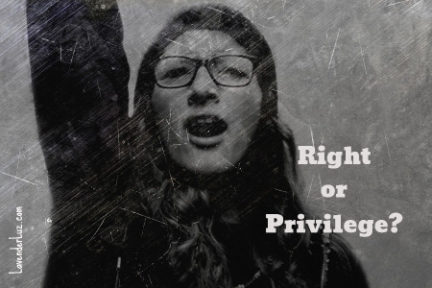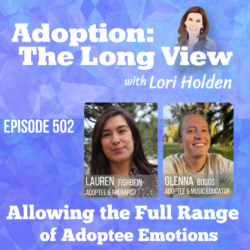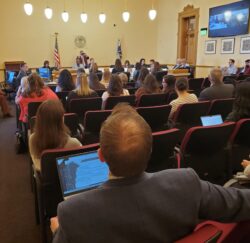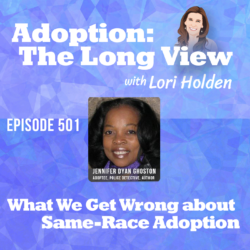What makes something a right as opposed to a privilege?
Edited at bottom.

I’ve been thinking about the essential difference between a right and a privilege for awhile and can’t seem to pinpoint an answer. The two words arise often during election seasons, which we are between at the moment, so maybe this is a good time to talk about it without heated rhetoric.
What Makes a Right a Right?
Rather than answers, I have questions.
- What is the source of a right?
- Is a right what one needs to live?
- In the list of rights we commonly hear cited (life, liberty, pursuit of happiness, those outlined in the Bill of Rights, civil rights, right to life, right to die, right to work, right to this or that) is there a ranking among them — are some more fundamental than the others?
- Is a right if, to provide it for one person, another must supply it?
- My teenagers argue they should have a right to unfettered access to the cell phones they bought and the service they pay more than 50% for. Is that a right? If not, under what conditions would it become a right?
- Is there an objectively right answer to this, or as one commenter says below, are rights in the eye of the beholder?
What do you think is the difference between a right and a privilege?
Edited to add: A commenter sent in this link from Cornell Law School. Excerpt:
Fundamental rights are a group of rights that have been recognized by the Supreme Court as requiring a high degree of protection from government encroachment. These rights are specifically identified in the Constitution (especially in the Bill of Rights), or have been found under Due Process. Laws encroaching on a fundamental right generally must pass strict scrutiny to be upheld as constitutional.
Non-Exhaustive List of Fundamental Rights
Examples of fundamental rights not specifically listed in the Constitution include: marriage, privacy, contraception, interstate travel. procreation, custody of one’s child(ren), voting
~~~~~
This post is part of #MicroblogMondays? Whazzat? A post that’s not too long. Head to Stirrup Queens to join the fun.
~~~~~
 Lori Holden, mom of a teen son and a teen daughter, blogs from Denver. Her book, The Open-Hearted Way to Open Adoption: Helping Your Child Grow Up Whole, is available through your favorite online bookseller and makes a thoughtful anytime gift for the adoptive families in your life.
Lori Holden, mom of a teen son and a teen daughter, blogs from Denver. Her book, The Open-Hearted Way to Open Adoption: Helping Your Child Grow Up Whole, is available through your favorite online bookseller and makes a thoughtful anytime gift for the adoptive families in your life.








27 Responses
I’m pretty sure I can pay for the privelege of most things, but rights, not so much.
I wish I could define right vs privelege. It would make those healthcare arguments so much easier.
Good point, Chicklet. A privilege is something that has a set value (which can change), and a right is priceless?
AYKM: you’re so right.
Wow, that is a toughie!!!
I guess I would be pretty conservative on the list of things that are “rights.” Very basic stuff — the right to live life how you choose, excepting in cases that you would directly and specifically harm others. One person not infringing on the other person’s right to live how they choose. (Circular and probably nonsensical, but that’s the best I’ve got right now.) 🙂
Everything else — a privilege.
Rights pertain to your liberty, safety of self and personal choices whether they be property or house of worship.
Privileges fall under the category of things that can be taken away without infringing on the above, like driving, voting, etc.
Quite a complex issue, geez, nothing like a philospophy discussion on the weekend, please pass me the mojitos por favor! Then I’ll sound really wise, ha, ha.
Hmmmmm. Rights are what one deserves for the mere sake of being present. Privilege is advantage over others for a variety of factors and reasons.
Would it be too easy to say I believe the answer is as simple as our fore-fathers put it: Rights are those endowed by our Creator and among these are Life, Liberty and the pursuit of Happiness.
All else falls into the category of a privilege.
I think where it gets complicated is in defining the role of government in securing those basic rights. Is that going to be question #3? 😉
Unfortunately, what is a right and a privilege is often like beauty – it is in the eye of the beholder. In other words, it is what a bunch of people get together and decide it is. The Founding Dudes: life, liberty and the pursuit of happiness.
Many people argue that it is a privilege, not a right to have children, and thus insurance coverage and any type of societal sympathy for seeking infertility treatment is like seeking sympathy for not getting Viagra covered under Medicare.
I think rights are like obscenity: I’ll know one when I see one.
Very interesting question. I like a lot of the answers before me. Chicklet, Mrs. X.
Growing up (especially as teens), that was a part of my Dad’s mantra. My brother and I had privelges, not rights.
Rights are worth fighting for.
I think a right is something so fundamental that it cannot be stripped away, whereas a privilege is not necessarily something you are inherently entitled to.
“a right is something so fundamental that it cannot be stripped away”
Like the fundamental right of a child to have his original birth certificate and be raised in her family of origin. Both of which are stripped away when they’re adopted.
“whereas a privilege is not necessarily something you are inherently entitled to”
Like buying other people’s children.
It seems to me that all rights -even those that some of us might argue *should be* natural – are granted us legally. As an American citizen, I have been granted certain rights in the great documents that govern our country. Life, liberty and the persuit of happiness might not be my right were I born in say, Nigeria or North Korea. When we talk about the difference between rights and privileges, we must remember that as citizens of a society where the majority determine the laws, we have the power to make any privilege a right, if we are willing to pay the price.
Now apply this to our current issues.
Is education a right? According to our current laws, a basic K-12 education is, if you are a citizen or legal resident. And for those that choose to live in our great country illegally? They do not have this right. We can change that, but can we afford to?
How about healthcare? In some countries like Japan and Norway, a citizen has a right to medical care. They do pay for it though. Their taxes are high and they recognize that these services are not free.
Deciding to make healthcare a right instead of a privilege is not as simple as getting a majority to vote on it. Obama has learned this the hard way. Making a change of this nature impacts so many systems within our society. One must then consider how to balance the unfairness of providing care to all fairly in a system where all do not pay equally into it. What of seniors and those in poverty who possibly need the healthcare more so than others? And if we as a society believe in life as a natural right (citizen or not) then how can we possibly turn away illegal residents who come seeking care?
The answers are ellusive but it’s logical to conclude that making a sweeping change of this nature will not come quickly – not in a few months time and possibly not in the next 3.5 years as some believe. If it truly the desire of the majority of Americans to make healthcare a right, our only hope of creating an effective and successful system will be to honestly evaluate the costs(and not just financially) and to fully understand the best practices of those countries who have traveled this road before us. It is afterall, how our forefathers once brought the Decalartion of Independence and Bill of Rights into existence, giving us the power to decide which privileges should become rights.
-Locke
Anon: so many great thoughts in there. Thank you.
A privilege is something that is earned, and a right is something to which you are entitled, regardless of merit.
You don’t have to be a “good” person to have rights. You have to be a “good” person to have privileges.
The rules for determining the differences are made by those in charge.
Casual Perfect, may I assume that the earning is related to the definition of “good”?
This is a hard one because how we use these definitions changes from person-to-person, but I usually define a right as something you are entitled to simply because you are a human being and you need it in order to live and a privilege is anything above and beyond that. Though live and quality-of-life would need to be defined too.
Though some would say that rights are protected by law and privileges are not. So once we make laws to protect something, they become a right rather than a privilege.
Like many others have said, here in the USA, our forefathers have stated that our rights include life, liberty and the pursuit of happiness.
A privelege is something that we have to work for in order to obtain. Having a car? Privelege. Owning a home? Privelege. Being safe in your home? Right.
We have extended those rights to include the Bill of Rights. People tend to forget this when they think that they should have something just because. They have forgotten the difference between a right and a privelege.
This is hard! Who asked this, anyway!?
I think the issue goes to the crux of humanity’s task: to continually balance the rights of the individual with the needs of the group.
As said in the Declaration of Independence, we are endowed with the right to life, liberty and the pursuit of happiness.
These rights, however ARE limited if/when they start to infringe on the same rights of another person. I do NOT have the right to take your Corvette, even if it is comes from my pursuit of happiness.
Similarly, if a right involves the labor or property of another person, it cannot be a right.
Thank you all for sharing your thoughts.
This is a very interesting conversation.
I agree that as a society we decide what is a right and if it is a right it should be a right for all human beings. If the right to life is a right then it doesn’t matter which society we live in (although I’m not saying it is our responsibility to fix the wrongs).
It is interesting that our society seems to have decided that it is a right to reproduce otherwise why don’t we sterilize people who continue to have children that they cannot raise? Nevermind the gray area, there are many parents who have had child after child taken away for abuse and neglect.
I would say that we currently believe that health care is a privilege – only available to those who have earned it or can pay for it.
I would argue that health care ought to be a right and having / raising children ought to be a privilege.
I keep thinking of the phrase “right to life” That could mean the right to health care as well as the right to live in a clean environment (as in free from toxic pollutants), among others. Interesting that we put financial gain of a small subgroup of our society over the value of both of those things.
Every right is a privilege, but every privilege is not a right.
You’re reposting an oldie, but a goodie!
Reading through the comments above, I agree that there’s a blurry line between rights and privileges, with society making the decision about which is which. Even more interesting is that different classes and cultures view these differently and hold these as different for those that are not within their group.
Right now, the hot topics is guns. I think the amount of screaming that is happening is due to the fact that there’s been a long overdue reassessment of whether bearing arms is truly a right, especially as young people are unnecessarily dying. Getting at the root of the fear surrounding repealing or modifying the second amendment is going to be critical for pushing for change.
This is deep for a Monday morning Lori!
I agree that rights pertain to existing as a human… but that rights also pertain to flourishing as a human (i.e. education, healthcare, choices with one’s body, etc.).
Privileges are extras that are nice to haves but not must haves…. vacations, nice clothes (vs. clothes, which I see as a right), big house…
Caveat – i’m Canadian, haha.
On something like the right to bear arms…. this to me does not seem like a right, b/c it’s not essential to survive nor does it contribute to a human being flourishing (aside from hunting for meat). I see bearing arms as the opposite.
Hmmm… I think a right is something that you need to be a fully expressed human — things that protect your ability to live as you are — right to freedom, right to vote, right to marry who you love… these are things that the law should protect. Privileges are things you can live without, but that improve the basic state of life. The thing is, things I think should be rights (healthcare, higher education, quality housing, good food) are seen as privileges to some. So I guess the difference is in the eye of the beholder, but I think in a truly evolved society that the right not to die of a treatable disease and the right to live in a decent housing situation and the right to get a quality education should all be there. Basically I want to live in Denmark.
Two words that each have multiple meanings. My answers are based on what I think you’re asking.
Privilege is something you are born with. An example from my era. I wasn’t privileged to be born legitimate, legitimacy afforded a different response, not just from the public and how they viewed you, what level of respect you were given, the laws afforded those born legitimate additional safeguards than those born illegitimate received. One of the reasons why amended birth certificates came to be in adoption, birth certificates were public documents then and they also identified whether you were born legitimate or illegitimate – the amended BC had the legitimate tick box marked yes I was born legitimate, my original BC has the tick box marked no, I was not born legitimate, and it was also circled just to make sure no one missed it. An example to put that into context today, I’m white, I am not viewed as suspicious like I see others view people of color, I’m given the benefit of doubt automatically because of the color of my skin.
A right is something given to you by the society you live in based on the laws and mores of that society. In some ways it also has similar underpinnings to privilege.
Here’s some legalese to further muddy the water: https://www.law.cornell.edu/wex/privileges_and_immunities_clause
Hamilton!
I’m seeing that the founding fathers wanted to make sure that rights extended across state lines, and that protecting rights across state lines was the “basis of the union.” I read that Hamilton was wanting to keep our union of states from becoming like the too-loosely-connected (and too often warring) countries of Europe.
And that the Privileges and Immunities Clause “extends not to all commercial activity, but only to fundamental rights.” Which leads back to my question: what makes something a fundamental right?